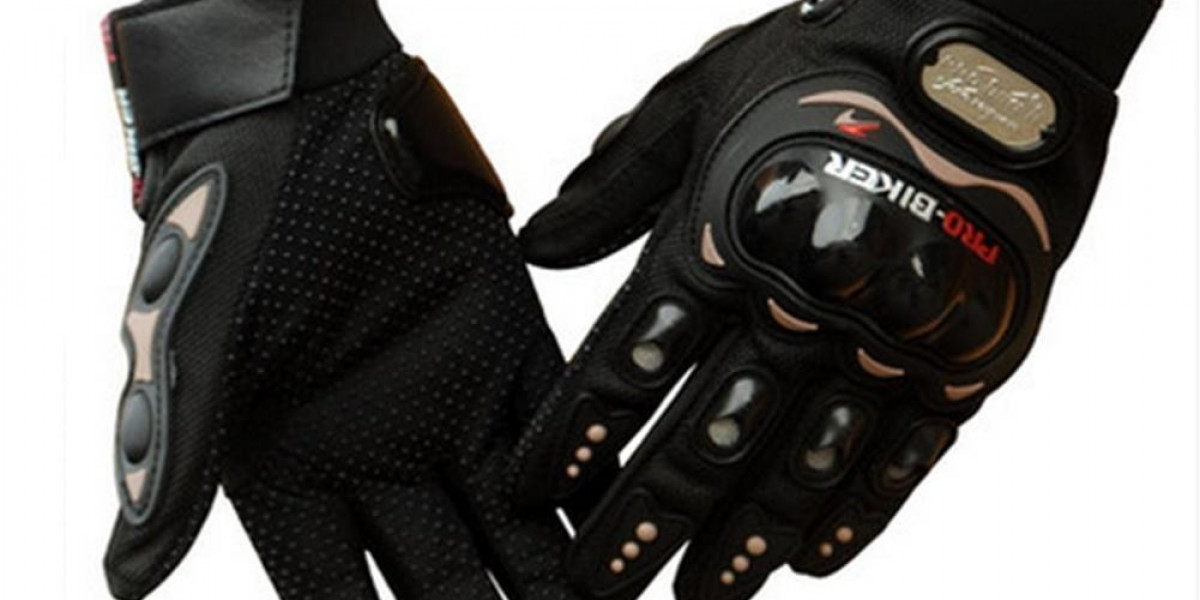Finding the right Shop Gloves for your workshop, garage, or job site makes a huge difference in safety and comfort. Whether you're welding, handling rough materials, or working with chemicals, the wrong gloves can lead to injuries, reduced productivity, and frustration.
Your hands are your most valuable tools, so protecting them should be a top priority. This guide helps you understand different glove types, materials, and features so you can make smart choices for your specific work needs.
Understanding Different Types of Work Gloves
Leather Work Gloves
Leather gloves provide excellent durability and heat resistance for many workshop tasks. They protect against cuts, scrapes, and moderate heat exposure.
Cowhide leather offers the best balance of flexibility and toughness. It's thick enough for protection but still allows good hand movement.
Pigskin leather stays soft even when wet and provides excellent grip. These gloves work well for jobs requiring dexterity in damp conditions.
Goatskin leather is the softest and most flexible option. It's perfect for detailed work where you need maximum finger control.
Cut-Resistant Gloves
Cut-resistant gloves use special materials to protect against sharp edges and blades. They're rated on a scale from A1 (lowest) to A9 (highest) protection.
HPPE (High-Performance Polyethylene) fibers provide excellent cut protection while maintaining flexibility. These materials are lightweight and comfortable.
Steel mesh gloves offer maximum cut protection for extreme hazards. They're heavier but necessary for working with very sharp tools.
Kevlar-blended gloves combine cut resistance with heat protection. They're ideal for jobs involving both sharp objects and hot materials.
Chemical-Resistant Gloves
Chemical-resistant gloves protect against acids, solvents, and other hazardous substances. Different materials resist different chemicals.
Nitrile gloves resist oils, greases, and many chemicals while providing good dexterity. They're puncture-resistant and comfortable for extended wear.
Neoprene gloves protect against acids, caustics, and alcohols. They maintain flexibility in cold temperatures better than other materials.
PVC gloves offer economical protection against many water-based chemicals. They're easy to clean and reuse for multiple tasks.
Heat-Resistant Gloves
Heat-resistant gloves protect against burns from hot surfaces, sparks, and flames. Temperature ratings help you choose appropriate protection levels.
Aramid fiber gloves resist heat and flames while maintaining flexibility. They're good for welding and other high-heat applications.
Aluminized gloves reflect radiant heat and protect against molten metal splashes. They're essential for foundry work and similar applications.
Silicone-coated gloves provide heat resistance with excellent grip on hot, oily surfaces. They're perfect for handling hot parts and equipment.
Key Features to Consider When Buying Shop Gloves
Sizing and Fit
Proper fit is crucial for both protection and comfort. Gloves that are too loose can catch on equipment or reduce dexterity.
Measure your hand circumference around the knuckles and compare to manufacturer sizing charts. Different brands may size differently.
Try gloves on if possible, especially for expensive or specialized types. What fits one person well may not work for another.
Consider buying a few different sizes to find your perfect fit across different glove types and brands.
Grip and Dexterity
Good grip prevents tools from slipping and reduces hand fatigue. Look for textured palms and fingers on work gloves.
Nitrile or rubber coatings provide excellent wet and dry grip. They're especially useful for handling oily or wet materials.
Dotted or diamond patterns on glove surfaces increase grip without significantly reducing flexibility.
Balance grip needs with dexterity requirements for your specific tasks. More aggressive textures may reduce fine motor control.
Cuff Length and Style
Cuff length affects protection for your wrists and forearms. Longer cuffs provide more coverage but may feel bulky.
Knit cuffs provide a snug fit that keeps debris out while allowing air circulation. They're comfortable for extended wear.
Safety cuffs prevent gloves from getting caught in machinery. The loose fit allows quick removal in emergencies.
Gauntlet-style cuffs extend well up the forearm for maximum protection against sparks, chemicals, or sharp materials.
Choosing Gloves for Specific Workshop Tasks
Welding and Metalworking
Welding requires gloves that resist heat, sparks, and UV radiation. Leather is the traditional choice for most welding applications.
Stick welding needs thick, insulated gloves for maximum heat protection. Flexibility is less important than heat resistance.
TIG welding requires thinner, more flexible gloves for precise control. Look for goatskin or thin cowhide options.
Grinding and cutting operations need cut-resistant gloves with good grip. Kevlar-blended options work well for these tasks.
Automotive and Mechanical Work
Automotive work involves oils, chemicals, and sharp edges. Shop Gloves with chemical resistance and cut protection work best.
Nitrile-coated gloves resist oils and provide excellent grip on tools and parts. They're comfortable for detailed mechanical work.
Look for gloves with reinforced fingertips and palms in high-wear areas. These features extend glove life significantly.
Consider disposable nitrile gloves for very messy jobs or when you need maximum dexterity for small parts.
Construction and General Labor
Construction work requires durable gloves that protect against multiple hazards. Leather gloves with reinforced palms work well.
Impact-resistant gloves protect knuckles and fingers from strikes and pinch points. Look for TPR (Thermoplastic Rubber) protection.
High-visibility colors help with safety on job sites where visibility is important. Bright colors make your hands more visible to equipment operators.
Breathable materials reduce hand sweating during long work days. Mesh backs or moisture-wicking linings help keep hands comfortable.
Electrical Work
Electrical work requires specialized gloves rated for voltage protection. Never use regular work gloves for electrical tasks.
Rubber insulating gloves are tested and rated for specific voltage levels. They must be inspected regularly for damage.
Leather protector gloves go over rubber gloves to prevent punctures and cuts. This combination provides complete electrical protection.
Arc flash protection requires special materials and construction. These gloves protect against the intense heat of electrical arcs.
Finding Quality Shop Gloves in Baltimore
Local Industrial Supply Stores
Industrial supply stores carry wide selections of work gloves for different applications. Staff can help you choose appropriate protection.
They often stock gloves from multiple manufacturers, allowing you to compare options side by side.
Local stores may offer bulk pricing for businesses or contractors who buy gloves regularly.
You can try on gloves before buying to ensure proper fit and comfort.
Specialty Safety Equipment Dealers
Safety equipment dealers focus specifically on protective gear and have extensive knowledge about glove standards and ratings.
They carry specialized gloves for unique applications that general stores might not stock.
Staff training at specialty dealers is typically more extensive, providing better product recommendations.
They often offer training on proper glove selection and use for different workplace hazards.
Online Options vs Local Shopping
Online shopping provides access to more brands and specialized types of gloves. Prices may be lower due to reduced overhead.
However, you can't try gloves on when shopping online. Sizing becomes more challenging without physical comparison.
Shipping costs and return policies affect the total cost of online glove purchases, especially for small quantities.
Local shopping supports community businesses and provides immediate availability when you need gloves right away.
Maintenance and Care for Work Gloves
Cleaning Different Glove Materials
Leather gloves should be cleaned with saddle soap or specialized leather cleaners. Avoid soaking them in water.
Synthetic gloves can usually be machine washed in cold water. Check manufacturer care instructions first.
Chemical-resistant gloves need thorough rinsing after exposure to remove contaminants. Some chemicals can degrade glove materials over time.
Air dry gloves away from direct heat sources. High heat can damage many glove materials and reduce protection.
Inspection and Replacement
Inspect gloves before each use for cuts, punctures, or other damage. Damaged gloves may not provide adequate protection.
Check chemical-resistant gloves especially carefully. Small holes can allow dangerous substances to contact skin.
Replace gloves when they show significant wear, even if they're not completely worn out. Protection decreases as gloves deteriorate.
Keep replacement gloves in stock so you're never without proper hand protection when you need to work.
Proper Storage
Store gloves in clean, dry locations away from chemicals and sharp objects. Contaminated storage areas can damage gloves.
Hang gloves or store them flat to prevent creasing and cracking. Folded storage can create weak points in the material.
Separate different types of gloves to prevent contamination. Oil-soaked gloves can damage other materials stored nearby.
Label storage areas clearly so you can quickly find the right gloves for each job.
Cost Considerations and Value
Budget vs Premium Options
Expensive gloves aren't always better for every application. Match glove quality to your specific protection needs and usage frequency.
Premium gloves often last longer and provide better comfort during extended use. Calculate cost per hour of use rather than just purchase price.
Budget gloves work fine for occasional use or tasks where gloves get damaged quickly anyway.
Consider buying a few pairs of quality gloves rather than many pairs of cheap ones that wear out quickly.
Bulk Buying Benefits
Buying gloves in bulk reduces per-pair costs significantly. This works well for businesses or frequent users.
Bulk buying ensures you always have gloves available when needed. Running out of protection isn't worth the small savings.
Storage space and glove shelf life affect bulk buying decisions. Some materials deteriorate over time even with proper storage.
Split bulk purchases with other users to get volume pricing without excessive inventory.
Making Smart Glove Choices
Choosing the right Shop Gloves protects your hands while improving your work efficiency and comfort. Understanding different materials and features helps you make informed decisions for your specific needs.
Quality Shop Gloves represent an important investment in your safety and productivity. Don't compromise on protection to save a few dollars on something so important.
Consider your work environment, specific hazards, and comfort requirements when selecting gloves. The best gloves balance protection with usability for your particular applications.
Whether you're shopping for Shop Gloves in Baltimore or anywhere else, take time to research your options and choose gloves that provide appropriate protection for your work. Your hands will thank you for the investment in proper safety equipment.
Remember that different jobs require different glove types. Shop Gloves in Baltimore suppliers can help you understand local availability and find the best options for your specific workplace hazards and requirements.







